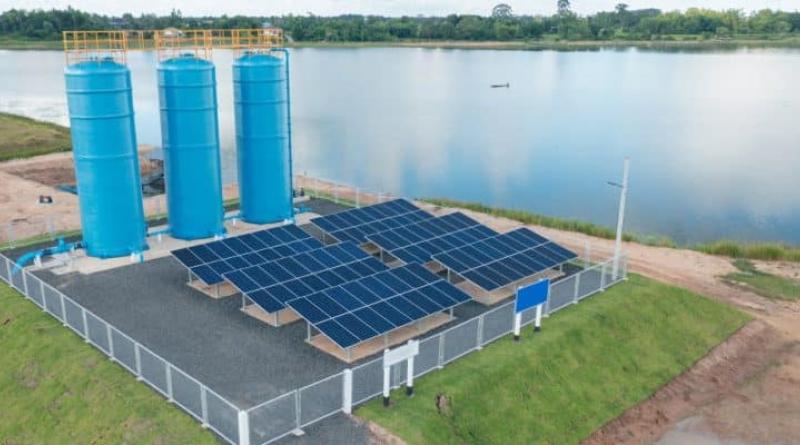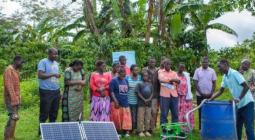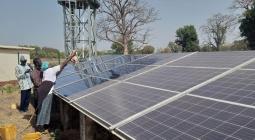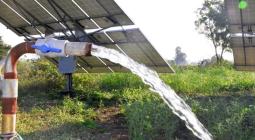The Ethiopian government recently participated in the launch of the "Dream" program (Distributed Renewable Energy-Agriculture Modalities). This multi-stakeholder initiative aims at the large-scale use of solar energy in irrigation.
Solar energy is being put to use in agriculture through irrigation. This solution will be further deployed under the “Dream” program (Distributed Renewable Energy-Agriculture Modalities) recently launched in Addis Ababa, Ethiopia. This multilateral initiative is supported by several development partners, including the World Bank, the European Investment Bank (EIB), and the African Development Bank (AfDB) through its Sustainable Energy Fund for Africa (SEFA).
Ethiopia becomes the first African country to benefit from the “Dream” which aims to invest in solar-powered irrigation systems. The program will be implemented in partnership with the Ethiopian Ministry of Irrigation and Lowlands, the Ministry of Agriculture and the Agricultural Transformation Institute (ATI). In this drought-affected country in the Horn of Africa, the “Dream” initiative will enable the deployment of 200 solar mini-grids to provide clean electricity to power irrigation systems.
The economic challenge for Ethiopia
Habtamu Itefa, the Ethiopian Ministry of Water and Energy, estimates that this initiative will benefit 290,000 people while creating at least 60,000 jobs. And by 2030, the use of solar mini-grids in agriculture is expected to offset 200,000 tons of greenhouse gas (GHG) emissions.
“The Dream project has the notable potential to contribute to the Ministry of Irrigation and Lowlands’ vision and mandate to irrigate 2 million hectares by 2030. As part of its National Irrigation Strategy (NIS), the ministry plans to leverage the use of renewable energy to achieve national food security and sovereignty through the expansion of commercially viable, environmentally friendly, climate-resilient and technologically advanced irrigation systems,” says Hizkyas Dufera, senior advisor to the Ethiopian Ministry of Irrigation and Lowlands.
This initiative is a boon for Ethiopia as it accelerates the development of its agriculture. The sector already accounts for 32% of the gross domestic product (GDP) and provides 70% of employment in this East African country. But only 5% of the land is irrigated and yields on small farms are below regional averages, according to official figures. The development of irrigation is the preferred solution to the water stress experienced by all countries in the Horn of Africa.
Jean Marie Takouleu
Read also- ETHIOPIA: Precise to manufacture 250,000 solar home systems locally






